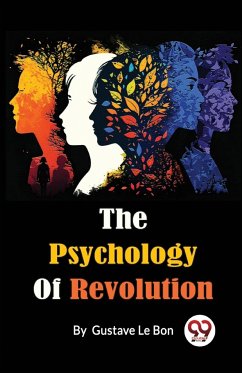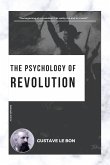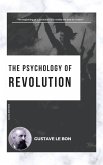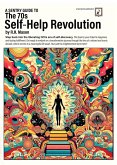"The Psychology of Revolution" is a book written by Gustave Le Bon. In this book, Le Bon explores the psychological and sociological factors that contribute to the occurrence of revolutions. He analyzes the motivations of individuals and groups who engage in revolutionary activities, as well as the emotions and beliefs that drive them. Le Bon argues that revolutions are not simply driven by political or economic factors, but rather by deeper psychological impulses that are rooted in the human psyche. He posits that revolutions are often driven by a collective belief in a shared cause, as well as a sense of identity and belonging to a group. Additionally, he suggests that revolutionary leaders often use manipulation and propaganda to sway the masses and mobilize them toward their cause. The book also discusses the role of crowds in revolutionary movements, and how they can be influenced and controlled by those in power. Le Bon suggests that crowds are inherently irrational and prone to violence and that they can be easily manipulated by skilled leaders who know how to appeal to their emotions and desires.
Hinweis: Dieser Artikel kann nur an eine deutsche Lieferadresse ausgeliefert werden.
Hinweis: Dieser Artikel kann nur an eine deutsche Lieferadresse ausgeliefert werden.







![The Mindset Revolution [2-in-1] The Mindset Revolution [2-in-1]](https://bilder.buecher.de/produkte/68/68571/68571340m.jpg)
